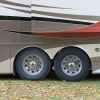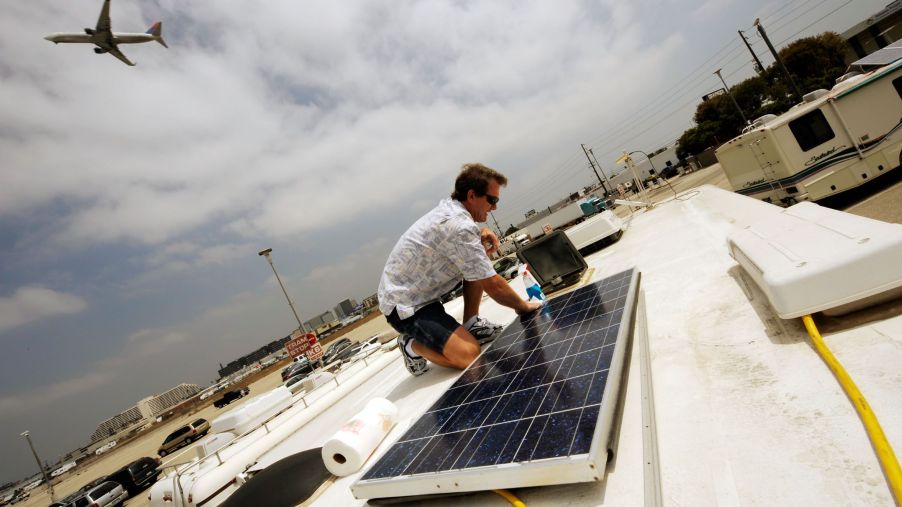
The Important RV Maintenance You Probably Aren’t Doing
Campers and RVs can be fun, but they require proper maintenance just like any car, pickup truck, or motorcycle. However, while RV maintenance is similar in some ways to car care, RVs have a few extra service requirements. And if you want to head out on an adventure, you’ll want to check that they’ve been done properly.
RV maintenance comes with more tasks
Many basic RV maintenance requirements are the same as they are for cars and trucks. They all have tires, brake pads and rotors, engines with oil, transmissions, water pumps, and timing belts, and so on. Naturally, that means regularly changing fluids, rotating your tires, and regularly inspecting and replacing wear items.
However, RVs tend to sit idle for longer periods than other motor vehicles. And just like with idle, low-mileage cars, that can actually damage various RV components. So, whether you own a camper van or a motorhome, if possible, run and drive your RV somewhat regularly. Or, if that’s not possible, make sure to store it properly, which includes stabilizing any onboard gasoline or draining it away.
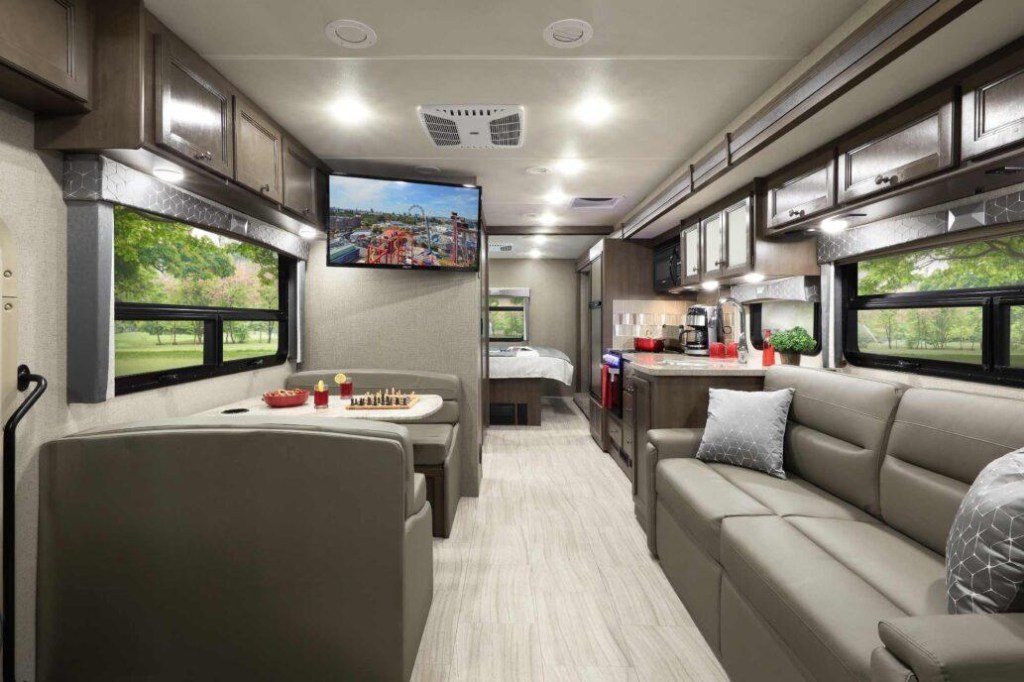
But RV maintenance goes beyond these basic items. RVs have features and amenities that aren’t found on passenger cars. They have kitchen appliances, extra lighting, electrical sockets, bathrooms, water tanks, as well as heating systems, and/or insulation. Not to mention on-board generators and/or solar panels with batteries to power all of this. And they all have their own specific service needs.
If this seems overwhelming, know that these tasks don’t have to and shouldn’t be done all at once, Outdoorsy explains. RV maintenance items generally fall into one of three categories: monthly, seasonally/quarterly, and yearly, Jayco explains. And while some are best left to professionals, many service tasks you can do on your own.
How easy is doing RV maintenance and service on your own?
A few monthly RV maintenance tasks should sound familiar to car owners: check the tires, brakes, air, oil, and fuel filters, and the oil, Camping World explains. You’ll also want to inspect your roof and exterior seals to remove debris, check for damage, and see if there are any leaks, RVShare reports. Plus, it’s important to check your RV’s circuit breakers and safety equipment, such as fire extinguishers and smoke alarms.
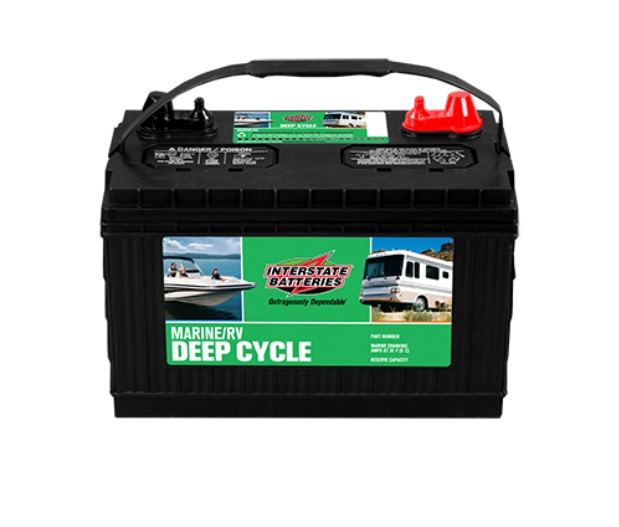
Beyond this, you should also run your on-board generator, if you have one, monthly to prevent the gas from going bad. The A/C unit also needs to be emptied and kept clean. Also, RV batteries don’t work exactly like car batteries—they need to be refilled with clean distilled water every so often, Signal Connect explains. And if you have propane-based heating/cooking equipment, you’ll want to refill the tanks as needed.
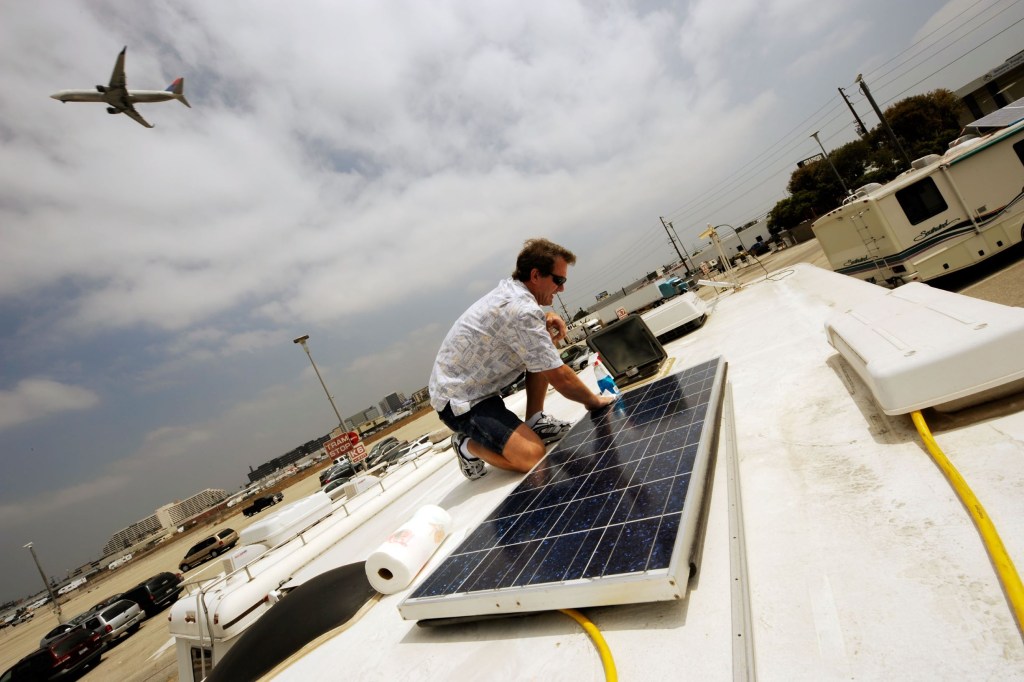
One way to avoid generator maintenance is to get solar panels, Outside reports. However, while they’re kinder to the environment and easier to live with, they have their own service requirements, RVTravel reports. Though mostly this involves keeping them clean, their fasteners tight, and checking the wire connections.
If you use your RV regularly, you know you’ll need to empty its gray and black water tanks, AxleAddict and RVShare report. But you also need to deep-clean both of these tanks, RV Vacations explains. For the black water/sewage tank, this involves dumping a mix of water and bleach into the tank, letting it sit for at least 10 minutes, and running clean water through it.
For the gray water tank, which has less-toxic contents, you can use bleach or specially-formulated cleaning compounds. It’s also recommended that you deep-clean the freshwater tank from time to time.
Are there dedicated mechanics or resources you can turn to for help?
Many RV maintenance issues can be fixed at home, RVShare reports. One of the most common is dealing with old or damaged seals, especially on the roof. Luckily, there’s RV roof sealant available, and it should be applied about once a year. And the seals themselves are replaceable, as is the awning. If you want to prevent some of this damage, though, it’s best to keep your RV covered when it’s not in use.
It’s a similar story for your RV’s plumbing needs. Unclogging a camper van’s drain is no different than unclogging your home kitchen’s drain. Ditto for the toilet.
However, as with any automotive maintenance task, if you don’t feel comfortable wrenching on something, it’s best to call a professional. And just like there are car and motorcycle mechanics, there are dedicated RV mechanics.
Follow more updates from MotorBiscuit on our Facebook page.

